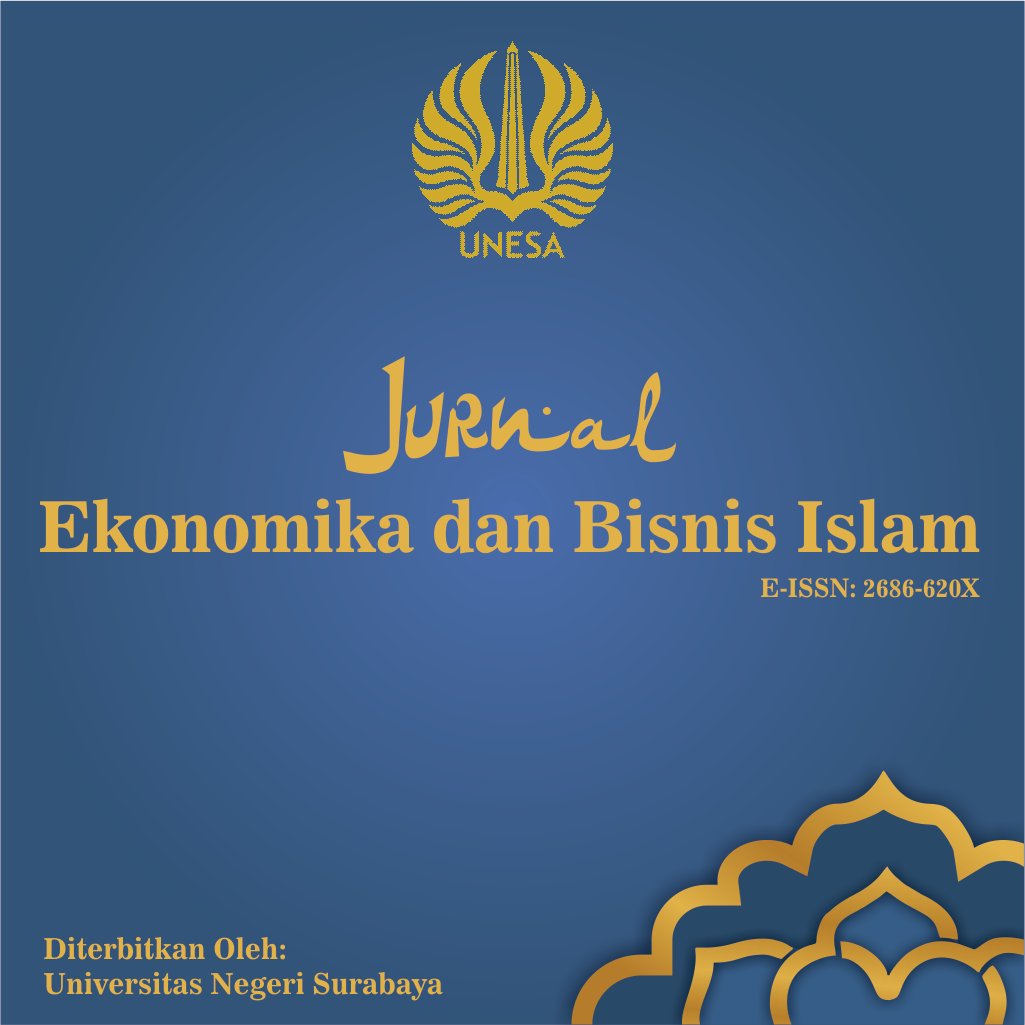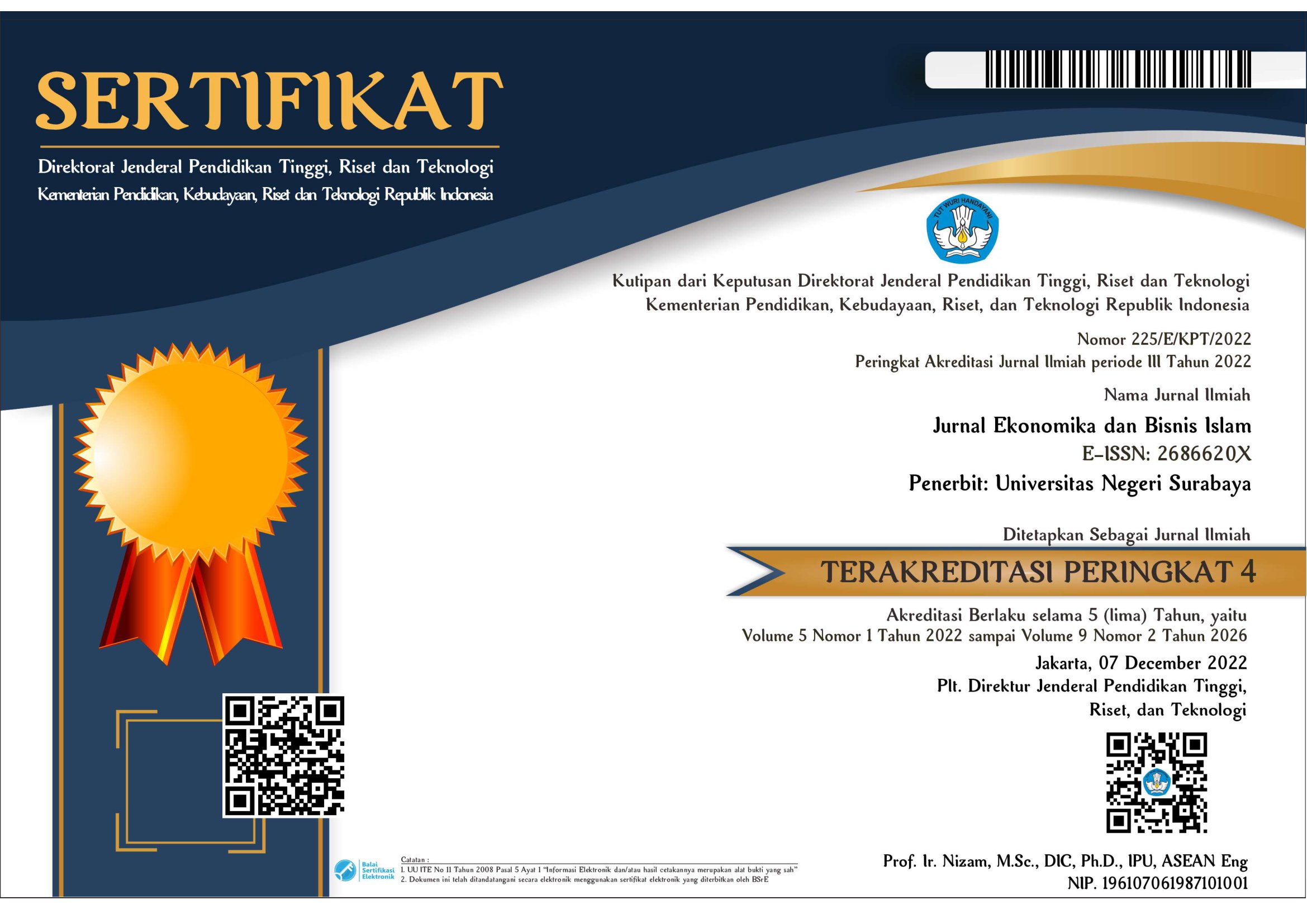Analisis Islamic Corporate Governance dan Islamic Intellectual Capital Terhadap Bank Umum Syariah di Indonesia
DOI:
https://doi.org/10.26740/jekobi.v5n3.p1-14Keywords:
Profitability, Islamic Corporate Governance, Islamic Intellectual CapitalAbstract
The development of the profitability of Islamic banks is still lower than that of conventional banks, so it is necessary to identify related strategies that must be applied to increase profitability, especially profits from asset management. This study aims to analyze the effect of Islamic Corporate Governance and Islamic Intellectual Capital on the Profitability of Islamic Commercial Banks in Indonesia. The population in this study includes all Islamic Commercial Banks in Indonesia. The sample used consists of eleven Islamic Commercial Banks in Indonesia for the 2016-2020 period. The research method used is quantitative with a descriptive causality research design. The data analysis technique in this study is the panel data regression method. The results of this study indicate that Islamic Corporate Governance has a negative effect on the profitability of Islamic Commercial Banks in Indonesia. Furthermore, Islamic Intellectual Capital has a significant positive effect on the profitability of Islamic Commercial Banks in Indonesia. This study implies that Islamic banking in carrying out its operational performance needs to pay attention to the quality of human resources, capital and systems including supporting technology and work culture that is applied as an effort to increase profitability.
References
Dodi. (2018). Islamic Bank Profitability : A Study of Islamic Bank in Indonesia. The International Journal of Business Review (The Jobs Review), 1(1), 51.
KNEKS. (2018). Masterplan Ekonomi Syariah Indonesia 2019-2024 (Deputi Bidang Ekonomi (ed.); 1 ed.). Kementerian Perencanaan Pembangunan Nasional.
Mizushima, T. (2009). Corporate Governance and Shariah Governance at Islamic Financial Institutions : Assessing from Current Practice in Malaysia.
Nawaz, T. (2018). Intellectual capital profiles and financial performance of Islamic banks in the UK. International Journal of Learning and Intellectual Capital, 1(1), 1. https://doi.org/10.1504/ijlic.2018.10017001
OJK. (2020). Statistik Perbankan Syariah.
OJK. (2021). Snapshot Perbankan Syariah Indonesia.
Downloads
Published
How to Cite
Issue
Section
License
Copyright (c) 2023 Hani Anisa Rinjani, Kusnendi, Aneu Cakhyaneu

This work is licensed under a Creative Commons Attribution 4.0 International License.
This work is licensed under a Creative Commons Attribution 4.0 International License.
 Abstract views: 479
,
Abstract views: 479
, PDF Downloads: 497
PDF Downloads: 497














